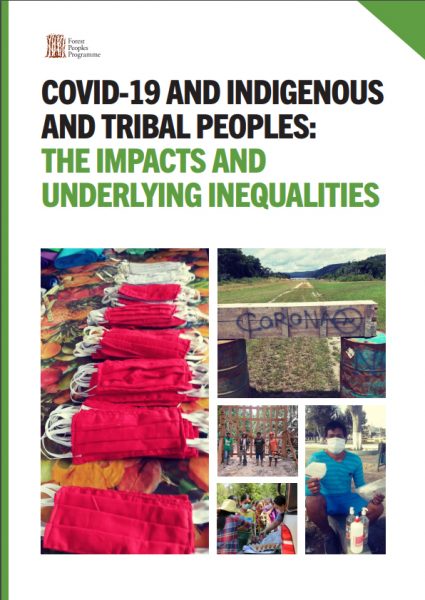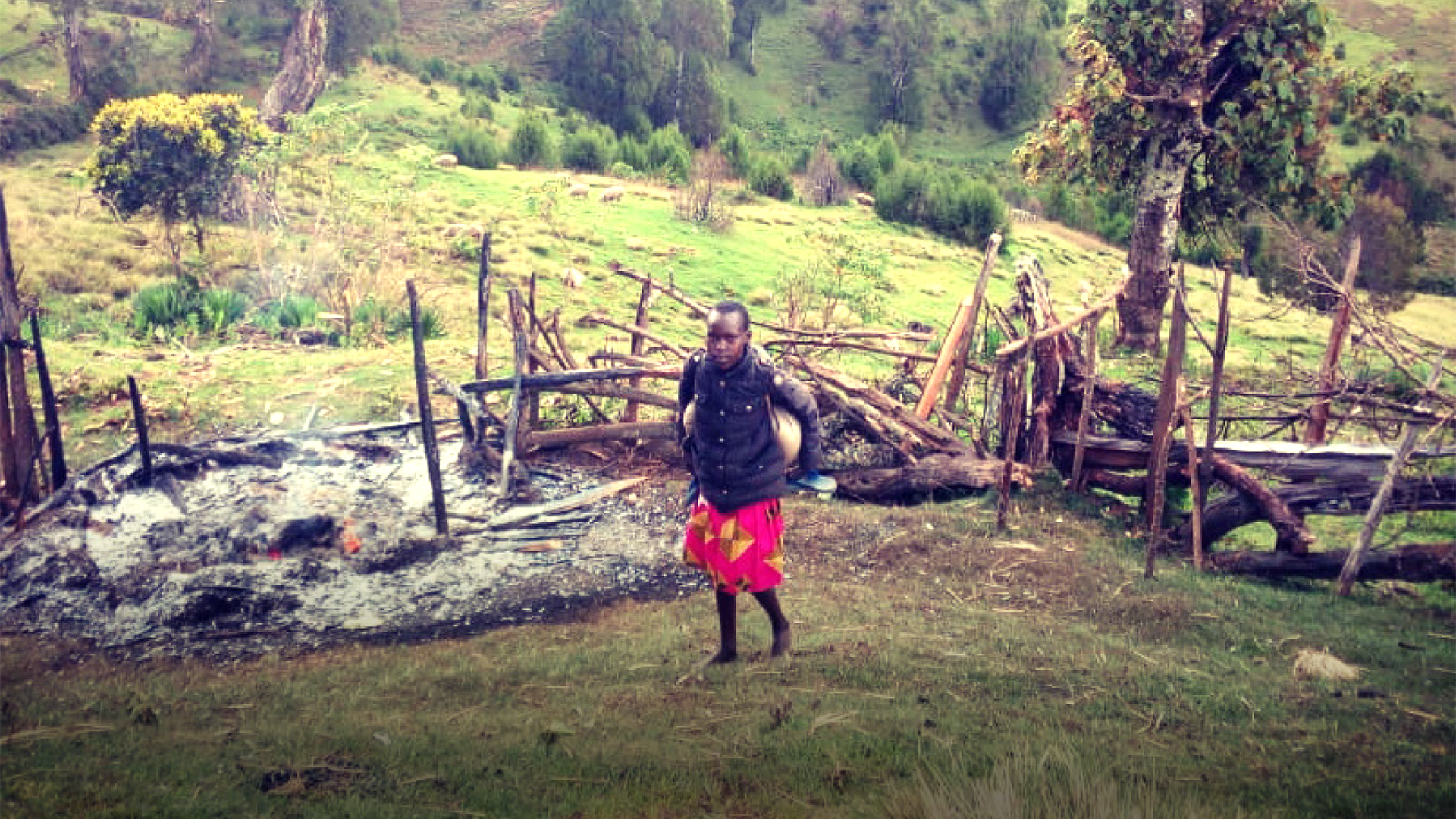First published on 12/15/2020, and last updated on 02/11/2025
A new report by Forest Peoples Programme illustrates that disproportionate impacts of COVID-19 on Indigenous peoples are directly linked to the failure to recognize and ensure their rights.
By Joyce Godio (Honorary member, ICCA Consortium)
This blog-post was first published by Forest Peoples Programme-FPP (Member, ICCA Consortium)
As news of vaccines begins to emerge, signaling at least the beginning of the end of the pandemic that has so altered our ways of living this year, we offer this report as a contribution to understanding the impact of COVID-19 on Indigenous and tribal peoples. It joins – and hopes to complement and contribute to – an increasingly broad and nuanced collection of papers, research and stories, and discussions that reflect that this pandemic has had a disproportionate and specific impact on these communities.
Our report “COVID-19 and indigenous and tribal peoples: The impacts and underlying inequalities” builds on the stories and responses of Indigenous or tribal communities and peoples in ten countries. These foundational stories reflect both the specific nature of impacts felt, and also the grounded responses developed by peoples and communities who faced severe lack of direct support from health, hygiene, or disease control, and crucial communication and information services of their central government.
The UN Special Rapporteur on the rights of Indigenous peoples, in his recent and powerful report on the impact of COVID-19 on Indigenous peoples, also highlighted this absence of appropriate State response and the powerful, local efforts made – including voluntary isolation. Data generated by Indigenous peoples’ organizations themselves under the Indigenous Navigator tools also reflected a lack of government services and highlighted Indigenous responses that emerged from, and strengthened, governance and self-determination at the territorial level.

Cover page of the FPP report.
However darker stories about the rollback of legal protections for the rights of Indigenous peoples, raised in our report, have also been researched and recorded, including in the excellent ‘Under the Cover of COVID’, by the Asia Indigenous Peoples Pact and Rights and Resources Initiative. We have to see evictions increase in Kenya. We have seen rushed, on-line and largely inaccessible ‘consultation’ processes in Colombia and Peru, continued incursions into Indigenous territories by private sector actors despite the spreading infections. The Omnibus Law in Indonesia rushed through during the pandemic, is being challenged by Indonesian organizations in front of the UN human rights system.
As this report outlines, and as has been the case in the face of previous challenges, the ‘original sin’ of State failures to recognize and realize the rights of Indigenous and tribal peoples to their ancestral lands, and to self-determination as peoples, continues to stain their futures. Without the security of tenure and self-determination, and full and effective participation in relevant planning and decision-making processes, catastrophic events such as this global pandemic that we are all living through will continue to have disproportionate impacts on Indigenous peoples. It is only through recognition and protection of these underlying rights that Indigenous and tribal peoples will stand as equals with all other peoples in facing challenges yet unknown.
Joyce Godio, the lead author, presented the report at the UNPFII expert group meeting on 9 December 2020. The meeting was webcast and Joyce’s presentation can be viewed from approximately 1:03:00-1:26:00 here: https://fb.watch/
More information: https://www.un.org/development/desa/indigenouspeoples/egm-indigenous-peoples-and-pandemics.html
A note on terminology: While Forest Peoples Programme use the term ‘Indigenous and tribal peoples’ in this briefing, these terms are often not the ones chosen and used locally, and all case studies included in the briefing continue to use the terms most familiar to and preferred by, local contributing authors.
Featured image: In Kenya, forced evictions in the middle of the COVID-19 pandemic leaves the Sengwer community with no homes.
In this photo, a young girl who had gone to bring maize flour for her family found their house has been burned down. Photo: FPP
Joyce Godio is the Global Research Coordinator of Indigenous Peoples Rights International
